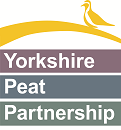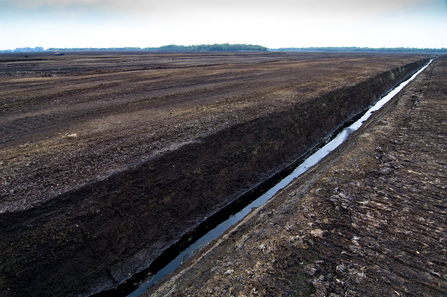Rosie Snowden, Peat Programme Manager at Yorkshire Wildlife Trust says:
“Whilst we welcome the move towards a ban, this simply isn’t good enough – the industry has already had over two decades to make adjustments and is now being allowed another seven years of habitat destruction and carbon emissions.
“There is no commercial peat extraction in Yorkshire anymore but all peat comes from somewhere and peat everywhere is important. These astonishing wild places deserve our respect and protection.
“The public is overwhelmingly in favour of a ban and this legislation should be giving consumers confidence they are buying peat-free products everywhere rather than actively needing to seek them out.”
Ailis Watt, Peat Policy Officer at The Wildlife Trusts says:
“Today’s announcement is bitterly disappointing. Last year we welcomed the news that the UK Government would ban the sale of bagged peat compost in England by the end of 2024. The Wildlife Trusts hoped that a ban on all peat products would follow shortly after this date.
“The destruction of irreplaceable peatlands for gardening should have been outlawed long ago. These precious habitats are vital for nature and for our climate because they store vast amounts of carbon and are home to some of the UK’s most special wildlife. We need to see far greater levels of ambition if the UK is to relinquish its status as one of the most nature-depleted countries on Earth or come close to achieving net zero emissions by 2050. Peatlands must be better protected as a matter of urgency.”
Today’s announcement will allow a large proportion of professional growers to continue to use peat to grow plants and mushrooms. According to data from the Growing Media Monitor, plug plants and mushroom production alone made up 42% of all peat used by professional growers in 2021.
For decades the UK Government set ineffective voluntary targets to tackle the horticulture industry’s use of peat and its corresponding habitat destruction. The Wildlife Trusts have repeatedly urged the Government to enforce bans for the last 30 years.
The Wildlife Trusts are calling upon the UK Government to:
- Ban the extraction and commercial trade of peat immediately
- Ban all horticultural uses of peat as soon as parliamentary timeframes allow, or by 2024 at the latest
- Restore all bogs damaged by the removal of peat by 2030
Ailis Watt continues:
“The decision to allow the sale of peat-containing products to continue until 2030 does not reflect the value of peatlands - here and abroad - and is at odds with this Government's manifesto commitment to ‘deliver the most ambitious environmental programme of any country on earth’.
“It contradicts the notion that gardening is an activity which is beneficial to nature and places a burden of responsibility on the consumer to ensure they are not inadvertently buying environmentally destructive peat-based products.”
The Wildlife Trusts estimate that policy failure to stop peat extraction has caused up to 31 million tonnes of CO2 to be released since 1990.
Commercial peat extraction in Yorkshire ended in the mid 2000s when Natural England purchased Thorne and Hatfield Moors (near Doncaster) from Scotts Ltd, which it later designated as Humberhead Peatlands National Nature Reserve. There is still a peat processing plant at Hatfield producing compost using peat extracted elsewhere. Yorkshire Wildlife Trust is working with farmers and landowners to explore the potential for peatland restoration on farms across the Humberhead Levels. Humberhead Levels is Britain’s largest lowland raised mire network which includes the 3,260 ha Humberhead Peatlands at Thorne, Crowle and Hatfield Moors, and the associated peatlands in the floodplains of the Rivers Idle and Torne. The original extent of the raised mires has more than halved over the last 300 years.

